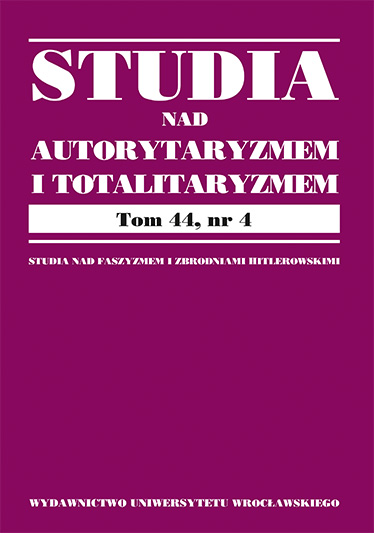

Artykuły

The end of World War II tore Poland from one totalitarianism (Nazism) and pushed it into the clutches of another, equally dangerous — communism. The new order and the new ideology took over Polish reality in its entirety. Unfortunately, this also applied to science and broadly understood university life. The new authorities regulated the personnel policy almost at whim, removing from the university space those individuals considered dangerous and defiant towards the socialist system. Another, milder manifestation of disciplining scholars who did not agree to the introduction of Marxism at universities was the forced transfer of professors to other universities, sometimes hundreds of kilometers away.
The article concerns one of the most outstanding Polish lawyers of the 20th century — Prof. Jan Gwiazdomorski, and more specifically, his official relocation from the Jagiellonian University to work at the University of Wrocław. This transfer was a form of repression applied by the authorities to the scholar who did not identify himself with the new, post-war Polish political system. On the other hand, the transfer weakened the scientific community of the Jagiellonian University, which also did not hold favorable views towards socialist reality.
The article presents hitherto unknown information relating to the Wrocław period in the scientific and didactic career of this luminary of Polish civil law. The source basis of the work are archival materials — a query of Jan Gwiazdomarski’s personal files and minutes of the Faculty Councils located in the Archives of the University of Wrocław. The author, referring to the discussed phenomenon, uses a historical and retrospective approach (he examines the problem from a present-day perspective) and indicates the legal grounds for transferring the scholar to the University of Wrocław.